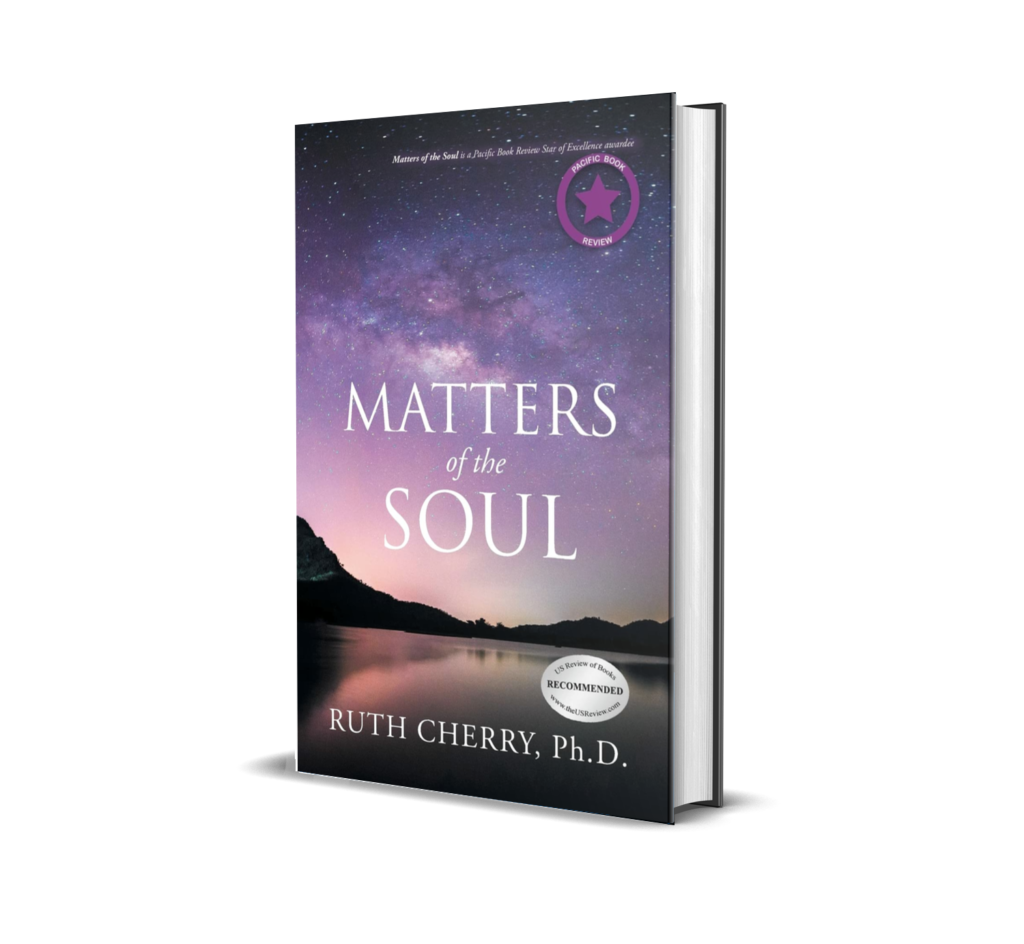

MATTERS OF THE SOUL
Ruth Cherry, PhD
Reviewed by: Barbara Bamberger Scott, The US Review of Books
“As we grow with life experience we come to appreciate the fullness and richness of our individuality.”
Clinical psychologist Cherry creates an enthralling look at how people might live more fully by acknowledging their inner selves and the deep reality that lies within them and, indeed, subsumes them in spiritual freedom. But to find and know that reality, one must search for it. Her book provides a guide to that adventure. Everyone has what Cherry refers to as “subpersonalities” that may control a person in ways one has never imagined. These may include a Hurt or Angry Child, Victimizer, Rebel, Controller, or Warrior, to cite some of the many projected selves that Cherry depicts. In showing readers how these subpersonalities proscribe and predict their behaviors, she uses examples of real people dealing with their own search for spiritual connection—a realm in which one no longer has a need for subpersonalities.
Examples offered by Cherry to illustrate this process of letting go include the case of Danny, a strong, tough divorcee whose reaction to emotional difficulties is denial. His parents divorced and left him when he was six. He represses his hurt feelings by shutting out others, dealing with unspoken inner pain with alcohol, overeating, and television. Sarah is an intelligent preacher’s wife whose husband constantly denigrates her. She avoids her fraught inner world through busyness, revering God as the great rule maker. Yet, she wishes to develop a more all-inclusive understanding. Lynn relies on her intellect to defer painful emotions until one blind date experience gives her the courage the listen to her feelings. After each of these case histories and the psychodynamic teachings accompanying them, there is an exercise, such as taking an internal elevator down to the lower, darker floors of one’s imagining. The exercises are followed by reflections that end with the encouraging exhortation: “And then write.”
Cherry is a counselor whose method involves merging the psychological with the spiritual. Her understanding of spirituality does not require a specific religious belief. Instead, it transcends the ritual and rules of many faiths by allowing those she helps to explore the spiritual concept of oneness and wholeness completely on their own. That realm, Cherry states, is “what is”—a place and a pattern of acceptance that leads to peace. The goal is a quality of unity and wholeness, no longer dictated by messages from childhood and culture. To reach that spiritual level, individuals must slough off their false selves. This allows them to embrace the freedom of the unconscious mind instead of fearing it. Her organized framework presents an element of safety to those who wish to explore her method, inviting them to journal their feelings and revelations as they go through her guidebook. As someone who recommends meditation skills in her work, she offers some simple instructions for that practice along with the many breathing techniques included in the “Exercise” portions. Clearly written to assist people like the variety of clients she has portrayed here, Cherry’s work can motivate and inspire those seeking genuine, lasting personality development and looking for first and intermediate steps toward that goal.
RECOMMENDED by the US Review
